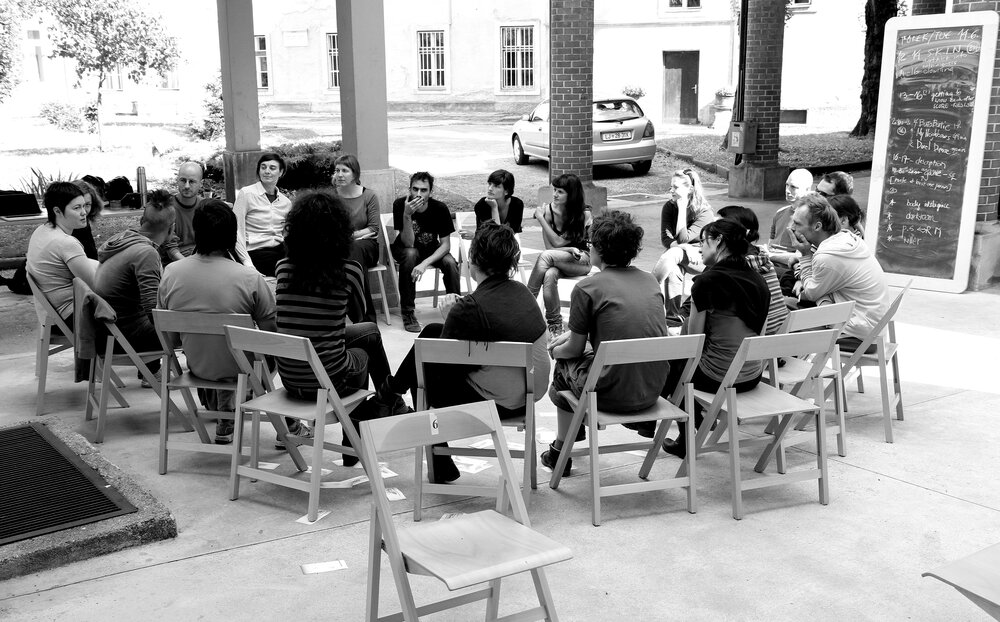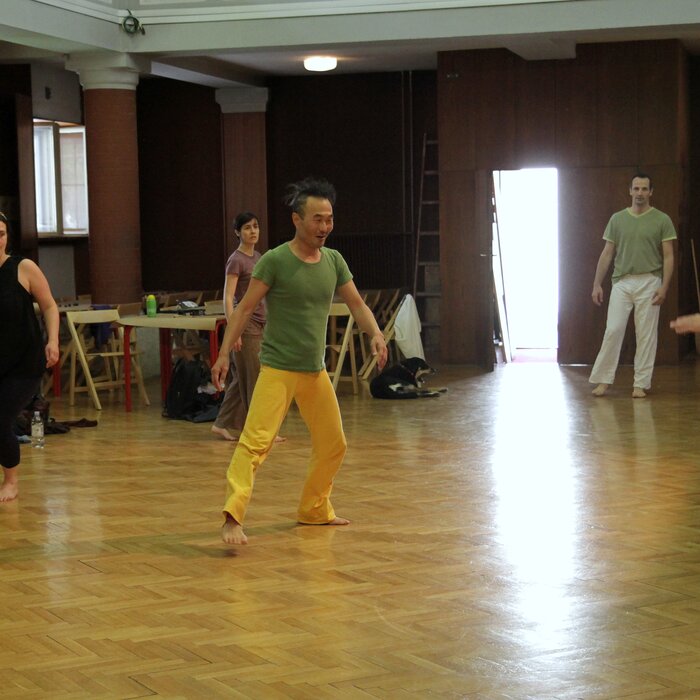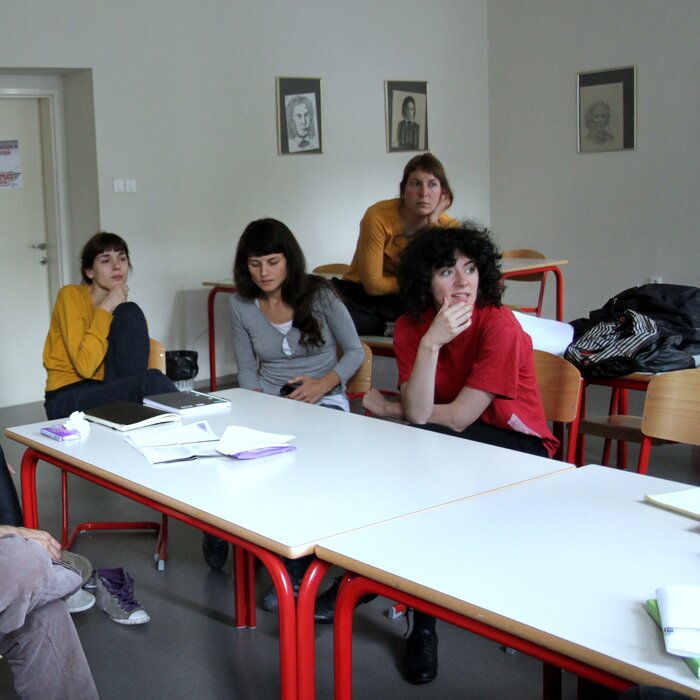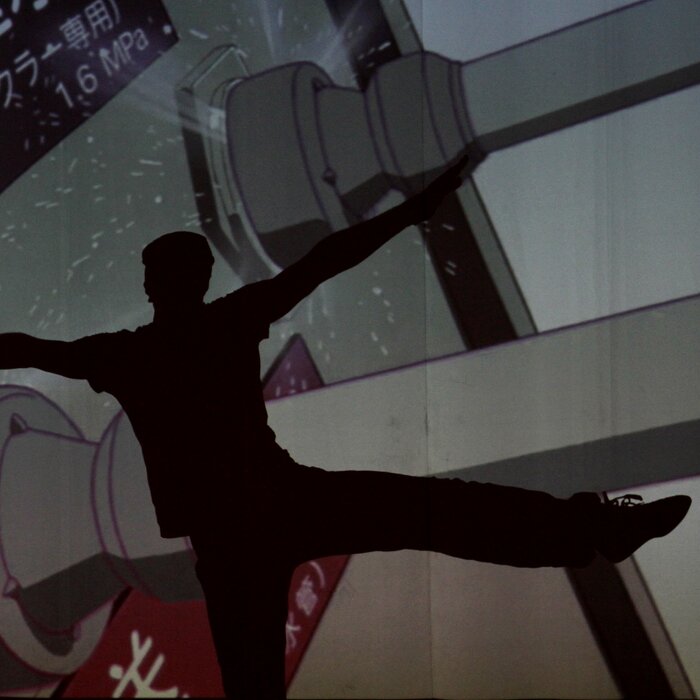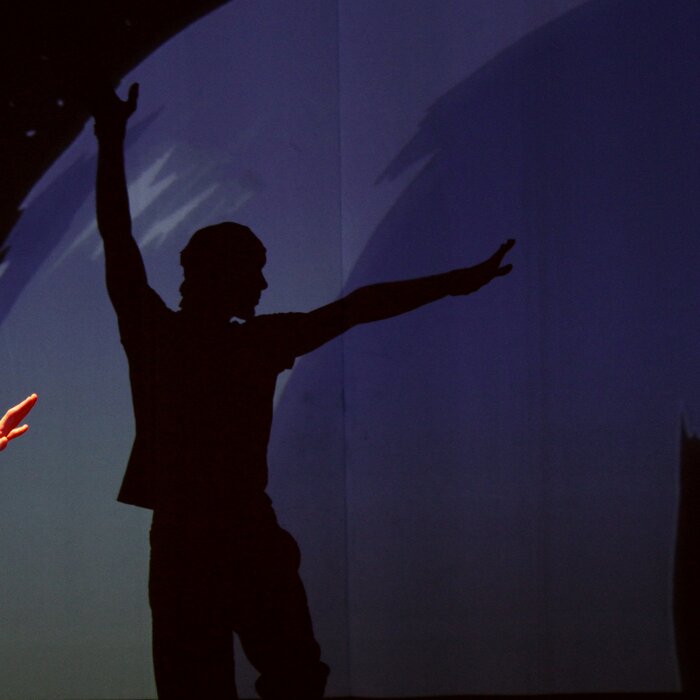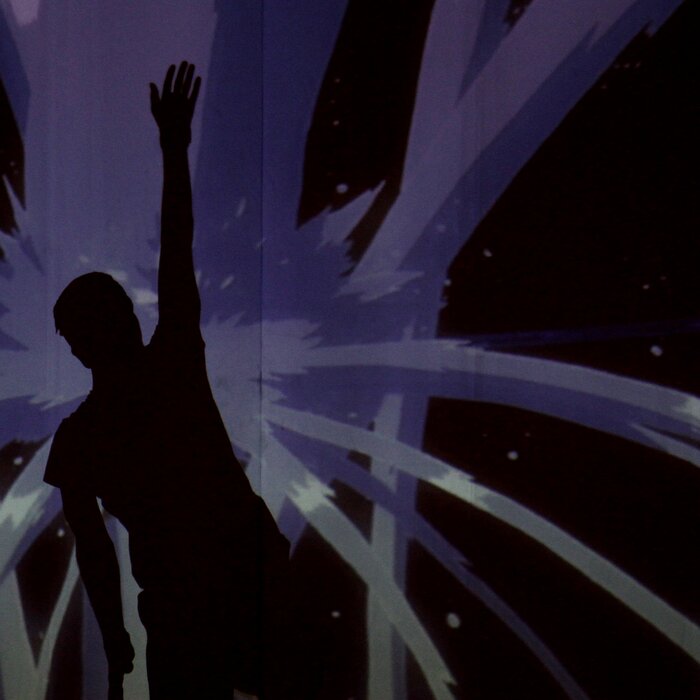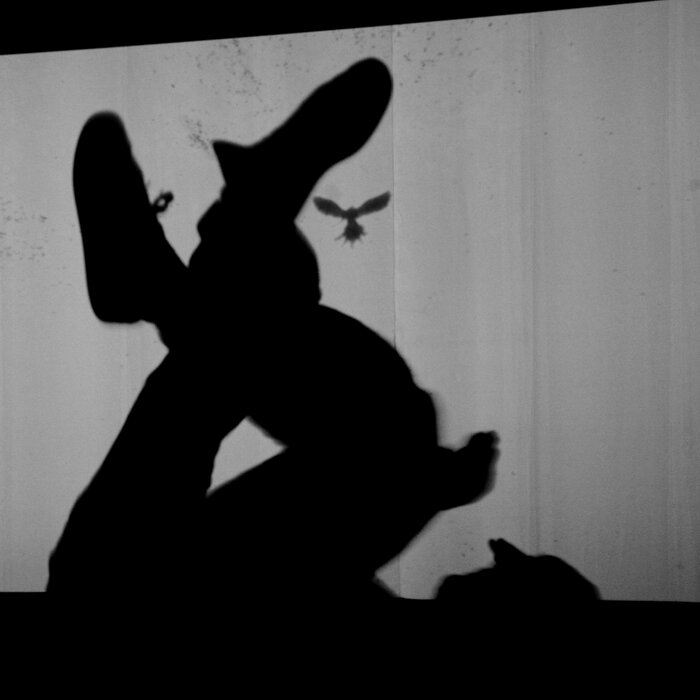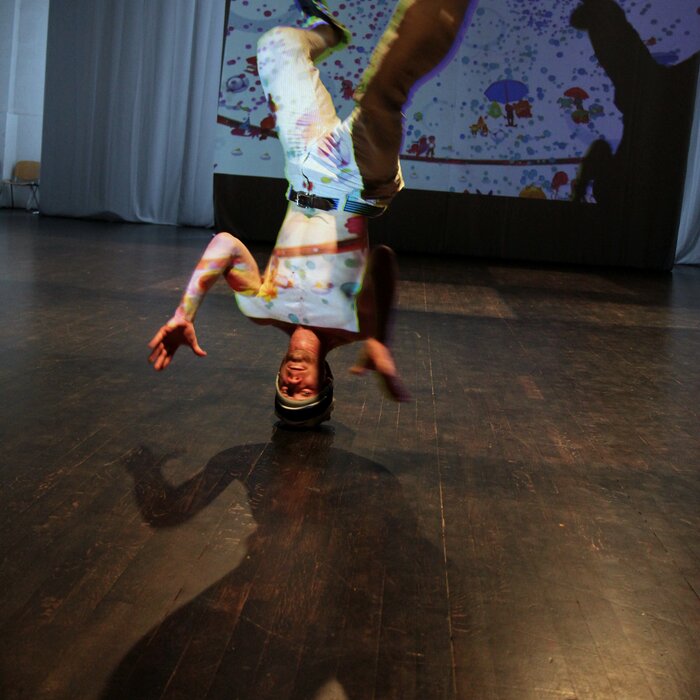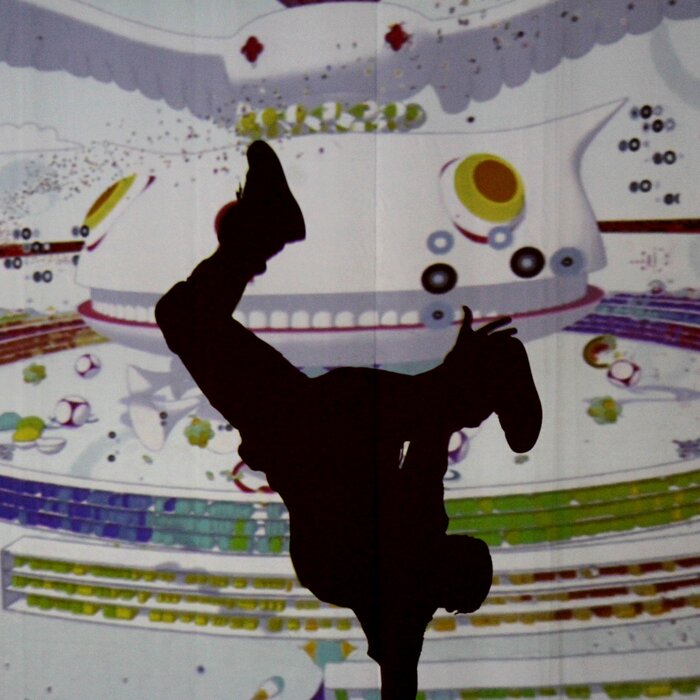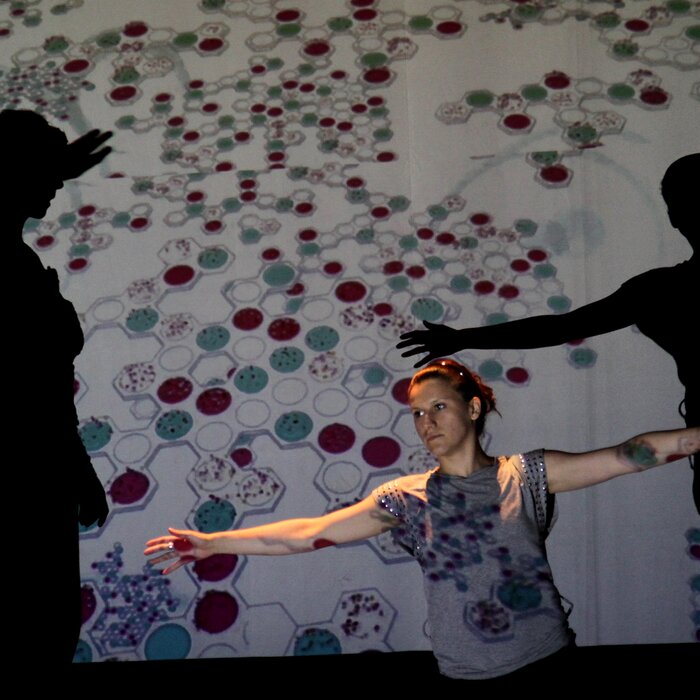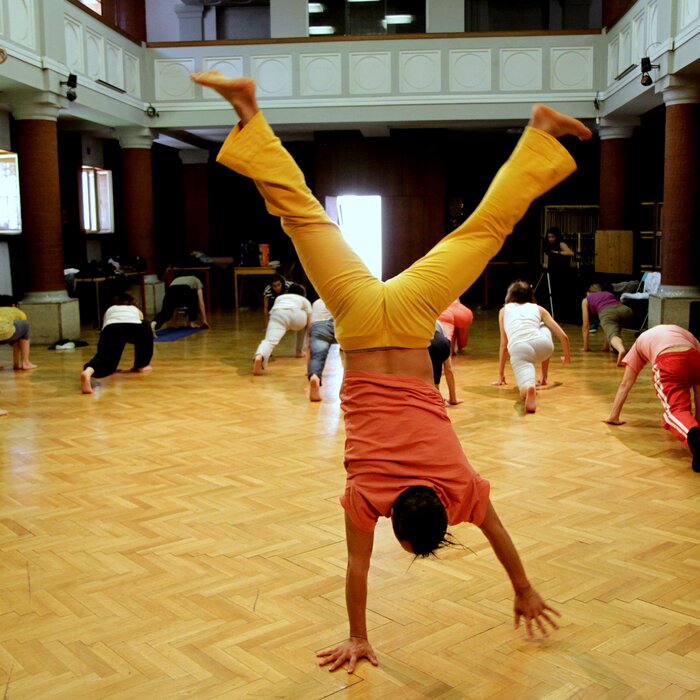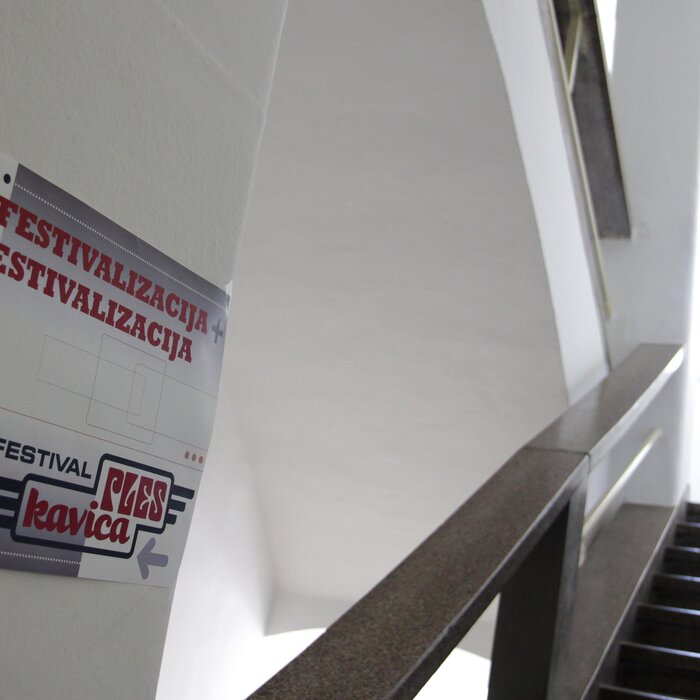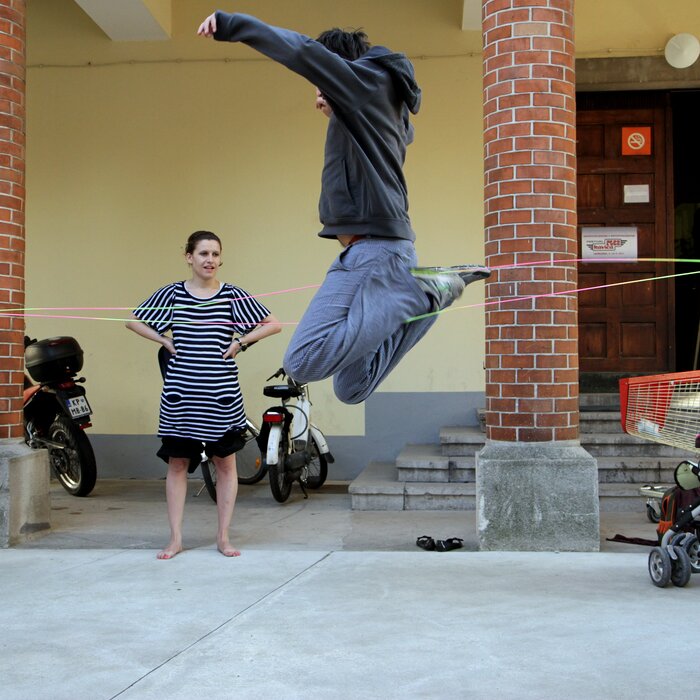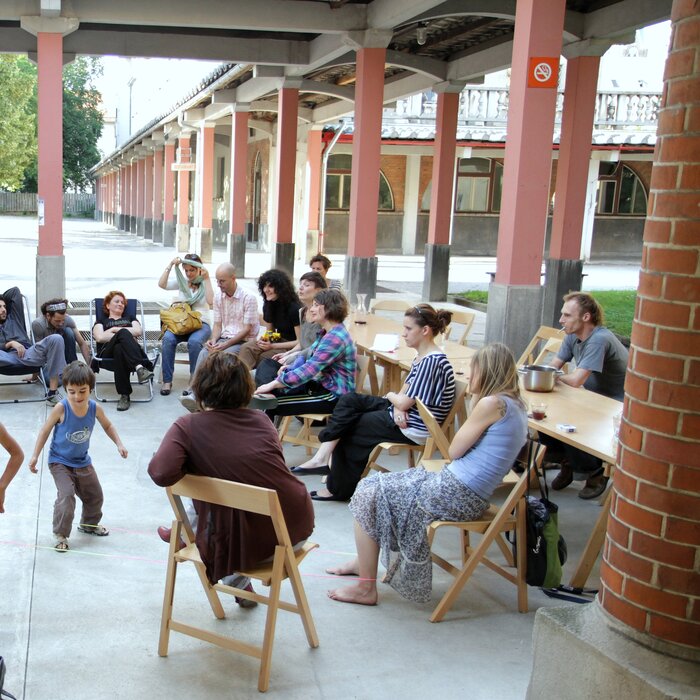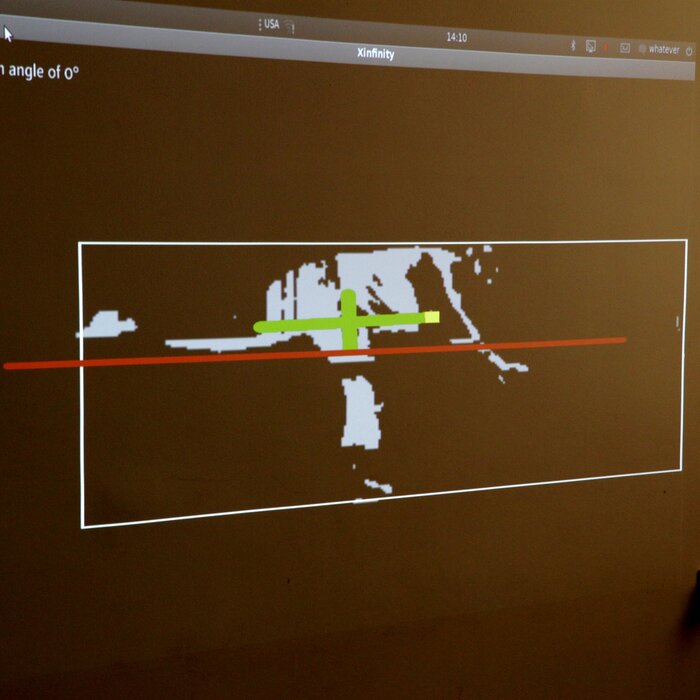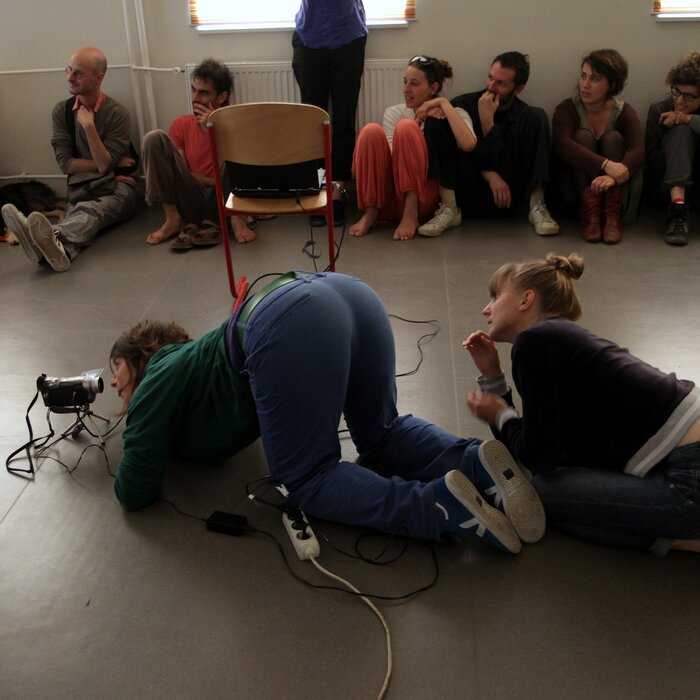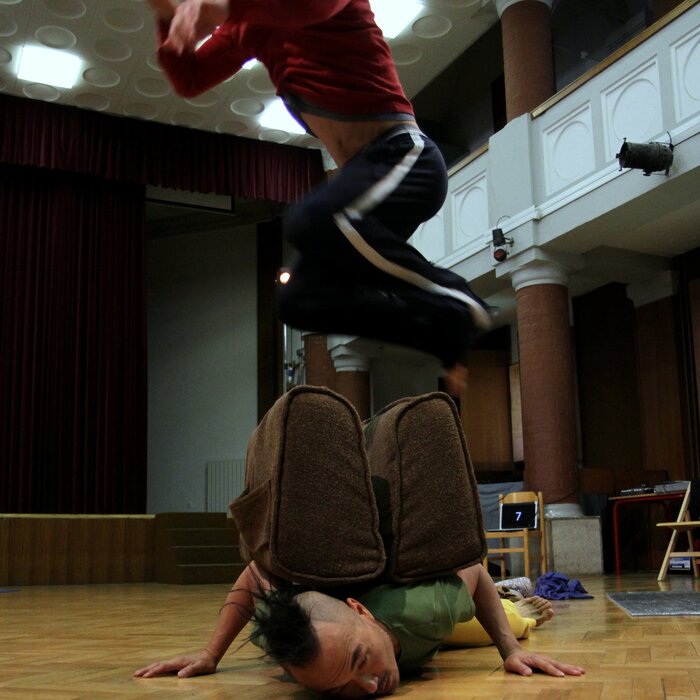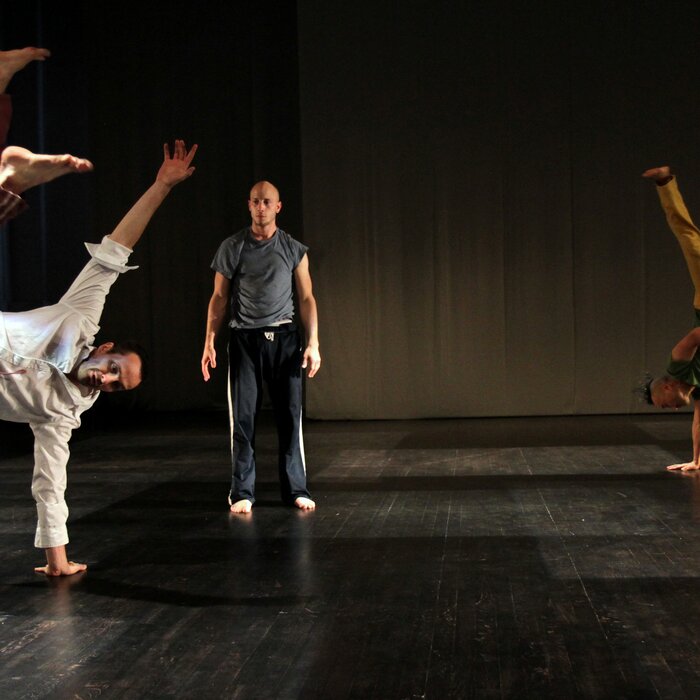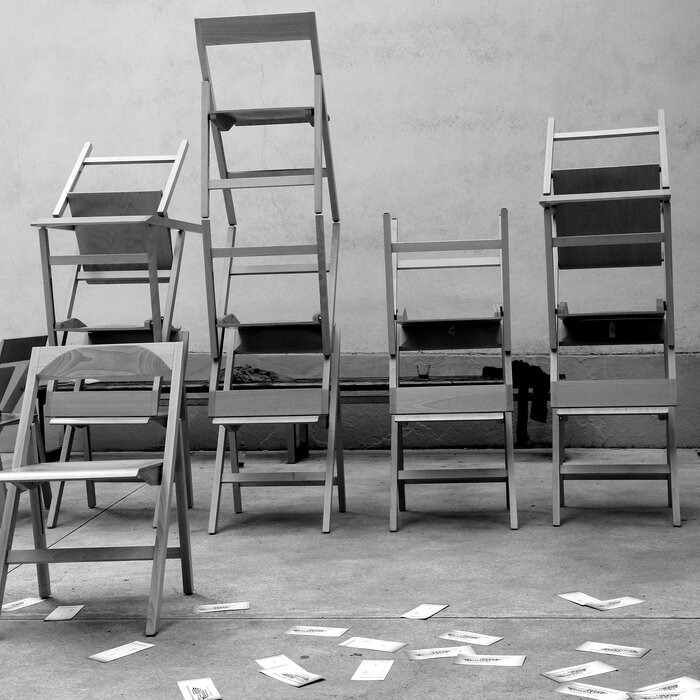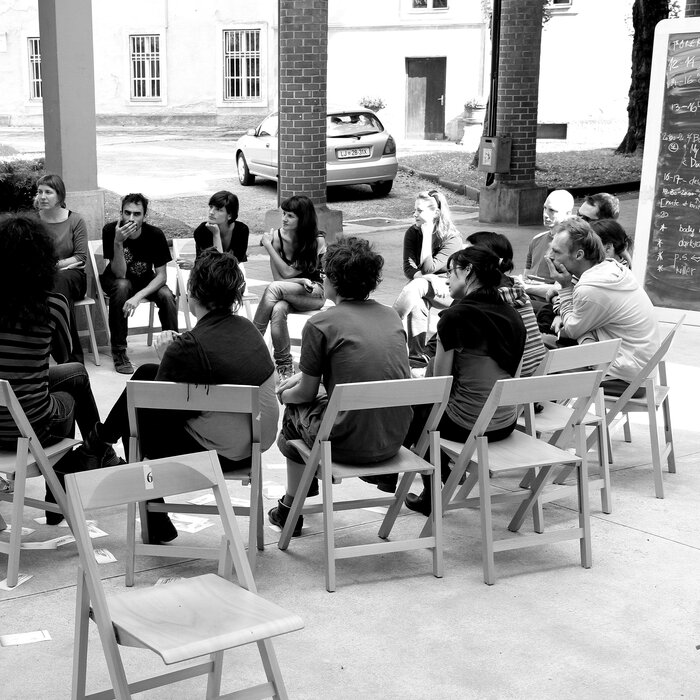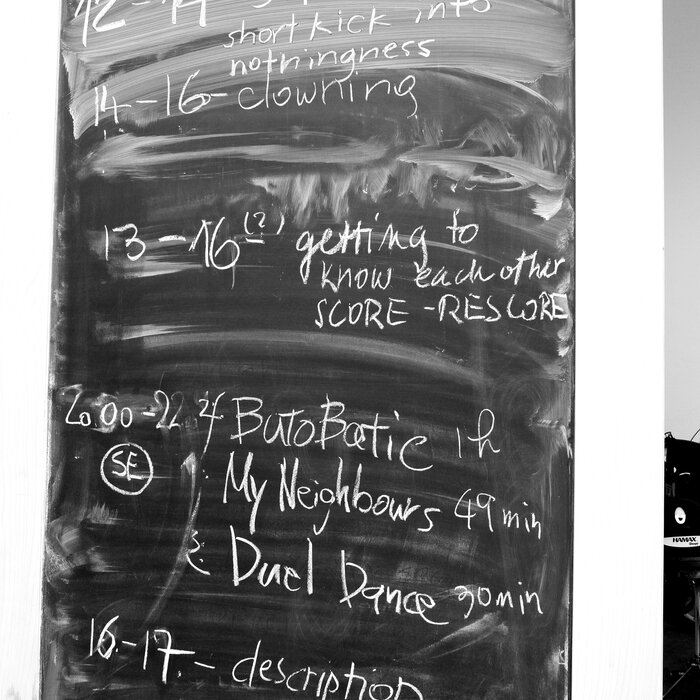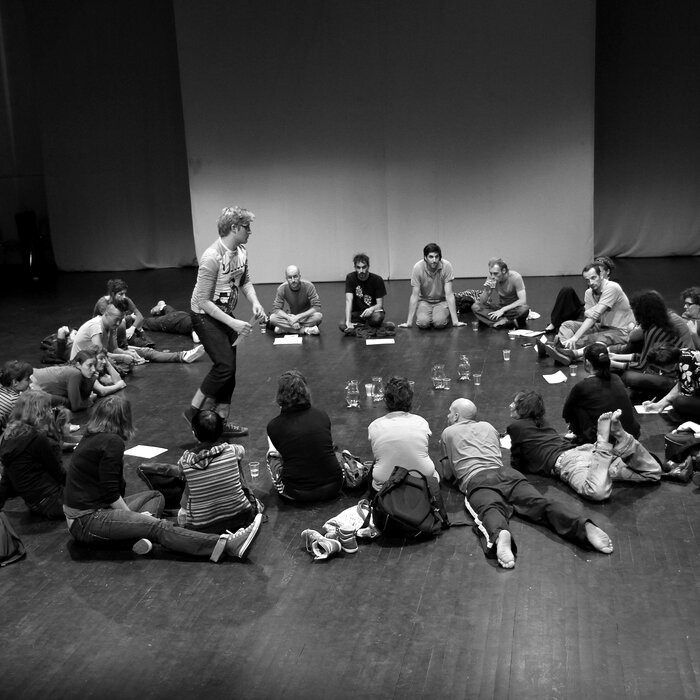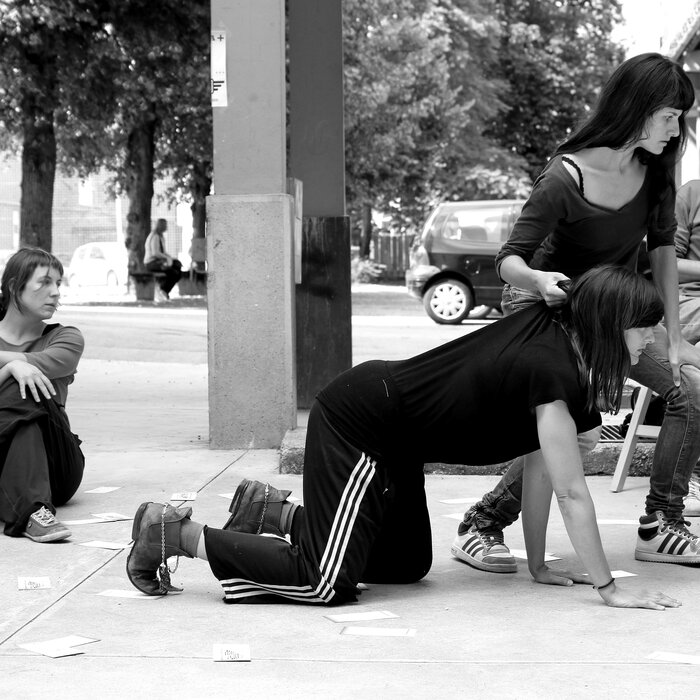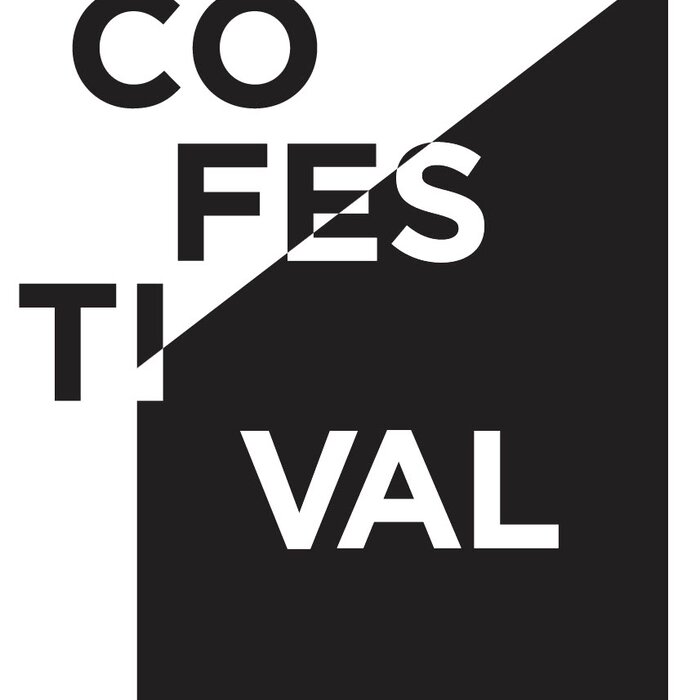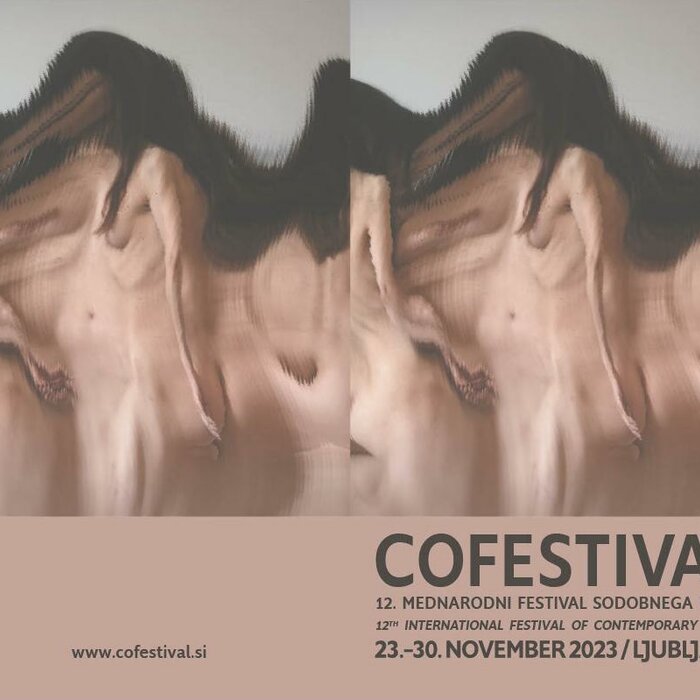De-festivalization = Re-festivalization.
»In 2010, the third edition of the Short Cuts festival, which presented the final works from participants in the regional NDA’s nomadic education programme, was supplemented with some international performances in the first Pleskavica festival. After ending the education programme and with growing awareness of hyperproduction and hyperfestivalisation, in 2011 the Pleskavica team — Goran Bogdanovski, Dragana Alfirević, Sandra Đorem, Gregor Kamnikar, Dejan Srhoj, Jasmina Založnik, and Rok Vevar — decided to detour from the widespread festival curation and rethink the notion of the festival, together with their colleagues. Therefore, instead of booking performances, the curatorial team decided to invite 36 artists from the Balkans and internationally, as well as some 21 local artists and other visitors. Under the title Defestivalisation – Refestivalisation, they clearly outlined their aim to rethink possible models and orientations of the festival, including a need for research and exchange. Guests curated a daily artistic and discursive programme with the visitors and presented its results in the evenings. By doing so “the principle of invitation in curatorial praxis appears to redistribute curatorial agency in a radical move to work with empty space and potentiality” (Baybutt, 2023, 101). The production of Pleskavica 2011 already included the NDA Slovenia, which was founded at the end of 2010. The following year, Pleskavica, with its partners Fičo Ballet and NDA Slovenia, joined with Ukrep – Festival of Dance Perspectives (Dance Theatre Ljubljana), and the European project Modul-dance with its partner Kino Šiška Centre for Urban Culture into a new initiative to act within the changing economic and cultural situation—CoFestival, the International Festival of Contemporary Dance (2012).«
From Nika Arhar, Jasmina Založnik (ed.), Bodies ofm Dance, Aspects of Dance as Cultural, Political, and Art Work in Yugoslavia and After (Belgrade, 2024)
